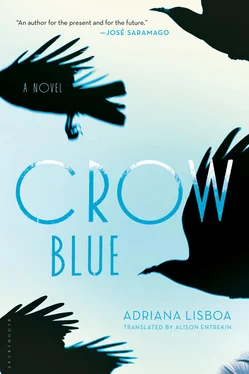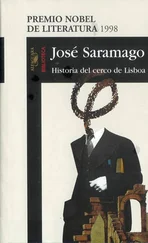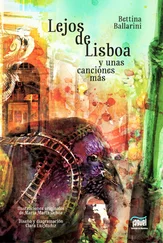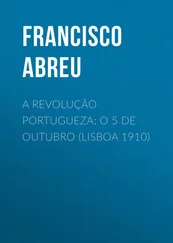At any rate, unfortunately, Horseshoe Chico’s two talents didn’t always agree to live in harmony in his future. Back then he was just Fernando, a kid who was full of energy and talked non-stop, useful qualities when he entered the University of Brasilia to study geography and got involved in the People’s Action movement. He went to jail once or twice too. But he didn’t learn to keep his mouth shut and watch the proud genesis of the Brazilian Economic Miracle (which was only miraculous for a while, and not for everyone, as he explained to me, but there was no question about it: everyone knew how painful, intensely painful, often mortally painful it was to challenge the military-uniformed status quo).
Almost four decades later, he still knew Chairman Mao’s words off by heart: When the enemy advances, withdraw. When he stops, harass. When he tires, strike. When he retreats, pursue.
Not that things of this sort were still part of his life when I went to live with him almost four decades later.
Everything had a price. Doing something. Not doing something. Advance, withdraw, stop, harass, pursue.
Everything already had a price when he was commando-crawling through the frozen mud in Peking, during the training that was supposed to take six months and ended up taking over a year. It had a price when he attended night classes in political theory, interpreted by two Chinese comrades whom he secretly nicknamed Ping and Pong — a vice of the good humor that, back then, was almost an illness and wouldn’t let go of him under any circumstances, not even on the coldest night of the Chinese winter and with serious subjects under discussion.
Everything already had a price when, on the journey back, the group of fifteen resistance fighters broke up in order to return to Brazil.
Saying that everything already had a price already had a price.
Chico entered Brazil across the Bolivian border, on foot, after passing through Europe. He stopped off in several Brazilian cities. He visited his mother in Goiânia, his widowed seamstress mother who was infinitely worried about the things her son was involved in and there was no point in him saying, in his best Maoist tone of voice, that he was doing it for her too. I’d rather you got a job, she would say, got married, gave me a couple of grandkids (not Maoists, she might have added), had barbeques (idem) on Sundays and didn’t disappear without a word for so long.
She didn’t know about the weapons, or Peking, and only suspected that her son’s disappearances had something to do with politics. Worse than that, with communists, those bearded, inflamed men. She didn’t know her son was one of them. Beard notwithstanding.
Chico met afterwards with the party leaders, worked in a country town in Bahia for a while and arrived in São João do Araguaia, in the state of Pará, on a summer’s day, three years after boarding that plane to Peking.
Pará was a whole country. It was the size of a country. Pará was almost big enough for two Frances. Three Japans. Two Spains and a bit. More than one thousand, six hundred Singapores. In that vastness in Brazil’s north, to which Brazil itself was oblivious, lived two million people when Chico set foot there for the first time.
It rained on the land, which was muddy and slippery, where shoes sank in and became stuck and came up sporting extra clods of mud on their soles when he lifted his feet.
It rained on the river, the Araguaia, the “River of the Macaws.”
It rained on the forest: the wild, superhuman Amazon, which the communists believed would be a friend of the rebels, hell for the Armed Forces — an area fertile for planting subversion, as an army report would conclude.
The rain made Chico’s clothes stick to his body, his hair to his forehead.
He glanced to one side and even though it wasn’t one hundred percent appropriate at the time he decided to have a chuckle at the water dripping from the straight black hair of the young woman the guerrillas had come to collect in Xambioá, along with him, to take to that piece of nowhere where they were now arriving, strangers to one another, strangers to everyone else, strangers to the place, strangers, period.
He decided to laugh at the forest’s thick rain drooping from her eyelashes, which made her blink a lot.
And she ended up laughing too, even if it wasn’t one hundred percent appropriate at the time. She laughed at the dirty, worn t-shirt stuck to the thin kid’s chest, and laughed because she didn’t know anything: where she was, what exactly she was going to do there under the generic name of guerrilla training, where that thin kid was from. His hands were calloused. His arms were firm. Her hands were the elegant hands of a student from Rio, much more accustomed to books than to the jungle. She had smuggled some nail polish and nail polish remover with her in her bag. And a wad of cotton.
The young woman would discover that Chico knew how to use a hoe. That he was good with weapons.
And other things.
When the enemy advances, withdraw. When he stops, harass. When he tires, strike. When he retreats, pursue.
The young woman went by the codename Manuela. She had left Rio de Janeiro not knowing her final destination. When she arrived in the forest, she was given a large knife and a revolver. She would live in a crude shack together with a group that included the thin kid. It was the Faveira guerrilla base, Detachment A.
She would learn to sleep in a hammock, use a revolver and work the land. Her elegant hands would cease to be elegant. The nail polish and nail polish remover would never be used. She would help set up a small school in a nearby village and would start to teach there. She would grow fond and then very fond of the thin kid, who wasn’t a kid, as he was twenty-five, two years older than her (fine, but he looked like a kid).
One day he told her about Peking, the frozen mud, the children playing in the snow, the opera, the farms and factories that he had visited (fine, but he still looked like a kid).
Deep in the forest, their neighbors were squatters: people who had fled the drought in Brazil’s northeast, which lacked the wealth that fell here in abundance — the rainwater that muddied the ground, that stuck to the soles of Chico’s worn shoes and that ran from Manuela’s damaged, glamourless hair, falling as only Amazonian rain knows how to fall. Real rain rain, spilling all over the word, over every letter, over all of the preconceived ideas that you might have of rain, flooding them, warping them, drenching them and leaking through the cracks, showing you that if until that point you had referred to some other meteorological phenomenon as rain, you would have to rethink. Reconsider.
The squatters would arrive and occupy a piece of land in the middle of that no man’s land. They would fell some trees, build a hut to live in and stay on.
The squatters thanked the rain for the rain; they thanked the rain gods, any thing or being, imaginary or not, physical or metaphysical in nature, that meant this: water in excess, the land on which to catch it.
A little over a year from then, General Médici affixed a bronze plaque to a tree trunk in the municipality of Altamira, inaugurating the great highway, which would go down in history as the most monumental public work conceivable by the military regime. The plaque said: On these banks of the Xingu, deep in the Amazon jungle, the President of the Republic begins the construction of the Trans-Amazonian Highway, a historic start to the conquest of this gigantic green world .
It was forty degrees that day. The general had hung the Brazilian flag from a tree (everything was improvised in those parts, it seemed) and listened to a military band play the national anthem, after being greeted by the three thousand inhabitants of Altamira. Later, the felling of a 160-foot tree marked the beginning of work on the future highway. The president was deeply moved.
Читать дальше












